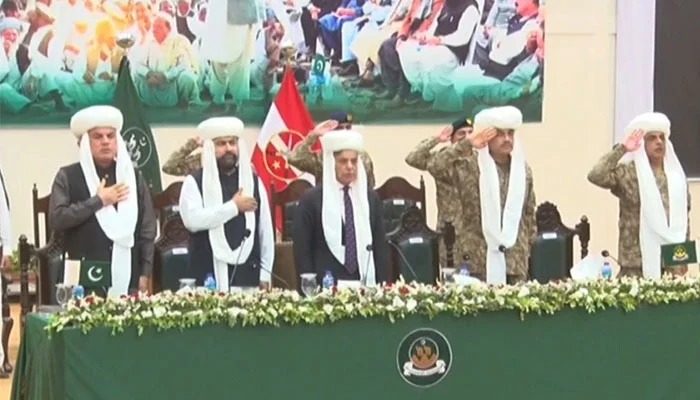In a firm and resolute tone, the army chief vowed that the nation’s integrity would be upheld at all costs, leaving absolutely no room for compromise

By our correspondent
ISLAMABAD: Field Marshal Asim Munir, Pakistan’s Chief of Army Staff, has publicly affirmed longstanding concerns over Indian interference in Balochistan, describing it as no longer hidden but openly evident. Speaking at a Jirga of tribal elders in Quetta, Munir pointed to clear intelligence showing terrorist networks operating within the province, a development he framed as a direct challenge to Pakistan’s sovereignty and security.
In a firm and resolute tone, the army chief stressed that the integrity of the nation would be upheld at all costs, leaving no room for compromise. He connected the peace and stability of Balochistan with the broader future of Pakistan, emphasizing that the province’s wellbeing is a cornerstone of national unity. Munir’s address conveyed a dual message: while the army would take decisive action against any hostile elements, the success of these efforts depended heavily on the support and cooperation of local communities.
The tribal elders present at the gathering voiced their full support for the military’s stance, affirming their solidarity with the government’s determination to counter external threats. Their collective commitment underscored a shared sense of responsibility and unity amid the ongoing challenges faced by the region. The Jirga, a traditional forum for local leadership, served as a powerful reminder of the close relationship between Pakistan’s armed forces and the tribal communities in Balochistan, both standing together in defence of peace and stability.
This public declaration by Field Marshal Munir comes amid increasing tensions in the region and highlights the complex security dynamics that continue to shape Balochistan’s role within Pakistan. The statement signals a robust military posture while also acknowledging the indispensable role of local actors in safeguarding the province from disruption and violence. This gathering, marked by mutual respect and a sense of urgency, reflects the deep-rooted connection between local leadership and national security efforts in one of Pakistan’s most sensitive regions.



